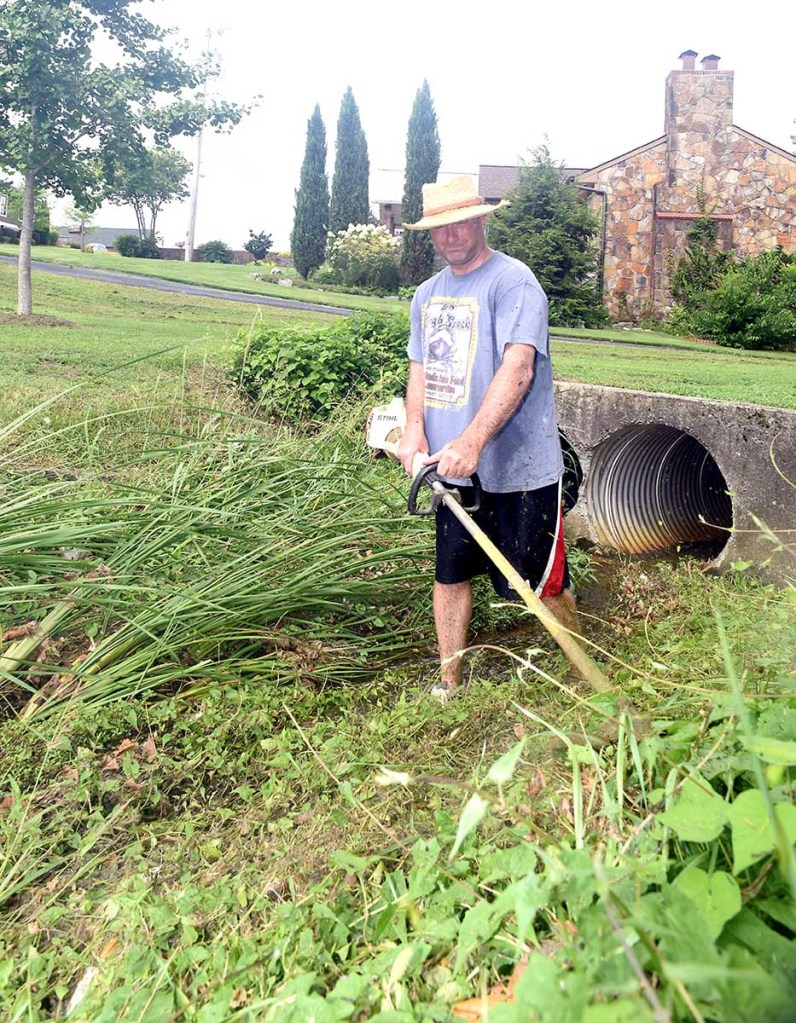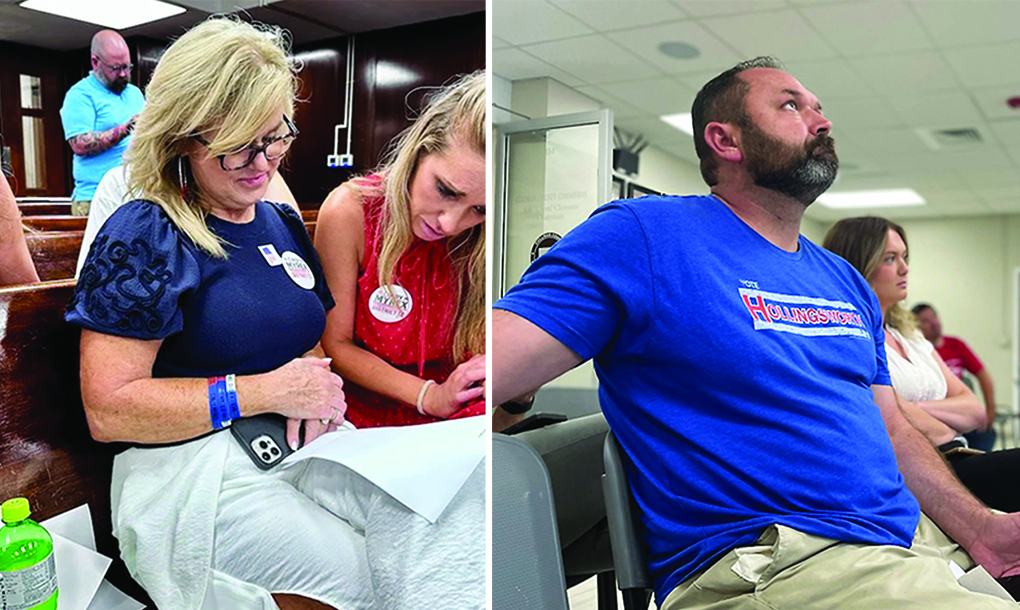Health officials warn of heat stroke
Published 5:30 am Friday, July 19, 2019

- David Hutchens spent Thursday morning and afternoon doing yard work at his home in Cullman’s historic district. He said he takes water breaks every 30 minutes to combat heat related illness.
Landscaping was on the agenda for homeowner David Hutchens Thursday, but with a heat warning in effect the Cullman knew to protect himself.
With temperatures reaching the mid 90s, and a heat index soaring to 105, staying hydrated was on his mind.
Trending
“I take water breaks every 30 minutes,” said Hutchens, who lives in the historic district.
Resident’s can expect another hot one today as temperatures are expected to hit 99 degrees and remain oppressive through Saturday.
“Be sure to stay hydrated with non-alcoholic fluids and limit any strenuous activities to the cooler parts of the day,” said Alabama Department of Public Health Officer Dr. Scott Harris in a news advisory.
“Pace yourself and be alert to the warning signs of illnesses which occur when the body’s temperature control system becomes overloaded. If you feel faint or weak, go to a cool place. While most people recover from heat-related illness, untreated heat stroke can result in death or permanent disability.”
People taking part in outdoor activities should know the signs of heat related illness.
Heat stroke, sometimes called sunstroke, is the most serious. It occurs when the body becomes unable to control its temperature. The body’s temperature rises rapidly, the sweating mechanism fails, and the body is unable to cool down. Body temperature may rise to 106 degrees F or higher within 10 to 15 minutes.
Trending
Officials are asking the public to check on elderly relatives, neighbors and friends, and ensure pets have plenty of water to drink and shade to cool off.
Warning signs of heat stroke include:
An extremely high body temperature (above 103 degrees F)
Red, hot and dry skin (no sweating)
Rapid, strong pulse
Throbbing headache
Dizziness
Nausea
Confusion
Unconsciousness
First aid recommendations for someone suffering from heat stroke, include are to get the person to a shady area, cool rapidly in a tub of cool water, place in a cool shower, spray with cool water from a garden hose, splash with cool water, or, if the humidity is low, place in a cool, wet sheet and fan vigorously. Monitor body temperature and continue cooling efforts until the person’s body temperature drops to 101 to 102 degrees F. If emergency medical personnel are delayed, call a hospital emergency room for further instructions.
A person with heat stroke is likely to be unconscious or unresponsive, so he or she cannot safely consume any liquids. Under no circumstance should a person with heat stroke or any heat-related illness be given alcoholic beverages.
Follow these tips to avoid heat-related illnesses:
Drink more fluids, and avoid beverages containing alcohol or caffeine.
When temperatures are extreme, stay indoors, ideally in an air-conditioned place.
Take a cool shower or bath and reduce or eliminate strenuous activities during the hottest times of the day.
Protect yourself from the sun with a wide-brimmed hat, light-colored, loose-fitting clothing and use of a sunscreen of SPF 15 or higher.
Avoid hot and heavy meals.
Never leave pets or people in a parked vehicle.
People with heart problems, poor circulation, diabetes, a previous stroke or obesity are at greater risk of becoming ill in hot weather. The risk of heat-related illness may increase among people using medications for high blood pressure, nervousness or depression because their medications increase sensitivity to high temperatures.
For more information about the prevention of heat illnesses, go to alabamapublichealth.gov/injuryprevention/heat.html






